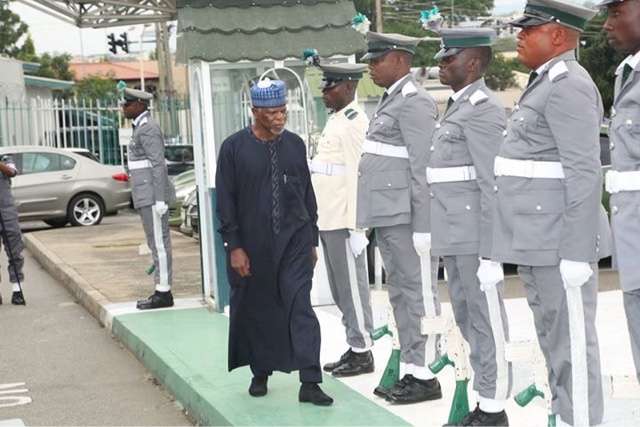• Want NPA’s Roles Redefined By N’Assembly
By Uzor Odigbo
Chief executives of customs clearing companies in Nigeria, under the aegis of National Council of Managing Directors of Licensed Customs Agents (NCMDLCA) have called on the federal government to build truck holding bays and truck terminals in order to rid the port access roads of trucks and trailers which have become a menace to the ports in Lagos and the neighbouring communities.
They said the seven percent port development surcharge was statutorily introduced to create a fund that ought to be exclusively devoted to maintaining and improving port infrastructure, including the building of truck holding bays.
The surcharge is drawn from an additional seven percent of the duty on imported goods.
National president of NCMDLCA, Lucky Eyis Amiwero, made the position of the port users known while presenting a paper at a forum in Lagos.
Amiwero also sought a redefinition of the roles of the Nigeria Ports Authority (NPA) in the face of addressing the dire needs of port and logistics infrastructure, especially access routes to the ports.
He expressed concern that the federal government has lost sight of the actual reason for the seven percent surcharge, noting that proceeds from the surcharge ought to be set aside and used to meet the infrastructural needs of ports nationwide.
Amiwero identified traffic gridlock on port access roads, breakdown of scanners, cumbersome customs clearing process and port service charges not tied to specific services as some of the issues militating against the growth of the shipping sector in Nigeria.
“The port in Apapa cannot be accessed by port users due to poor access roads. The federal government must provide a permanent solution to this instead of palliative measures that do not last. Regulators should work to reduce dominant market powers of port operators.
“The government must build truck holding bays and truck terminals with part of the seven per cent port development fee and define the role of NPA through the enactment of proper legal frameworks that will allocate its responsibility. The country needs to define the port model in properly structured legal instruments; enact legislation to control and regulate the shipping/ocean business based on global best practices.
”The government needs to also reduce the high storage/demurrage charged by shipping companies, a matter that is currently in court, logistics facilities such as efficient ports and terminals including efficient multimodal connectivity,” Amiwero said.
Also speaking, a logistics expert and maritime consultant, Samson Chima, who described transport development as one of the world’s biggest technological breakthroughs, said the country is still far from an ideal society with moderate transport infrastructure.
“With connection of the various transport modes, the country’s logistics can begin on the effective note. And availability of transport infrastructure can largely improve standard of living of a people,” Chima said.
He regretted that inland water transport has not been harnessed even as he recommended the need to also look at cargo by air, especially investing in infrastructure for handling air cargo.
“Other areas we want the federal government to work on include improvement in rail network and reactivating the eastern ports. The gridlock and bad road problems we have in Apapa are caused by over-concentration on the Lagos ports.”













